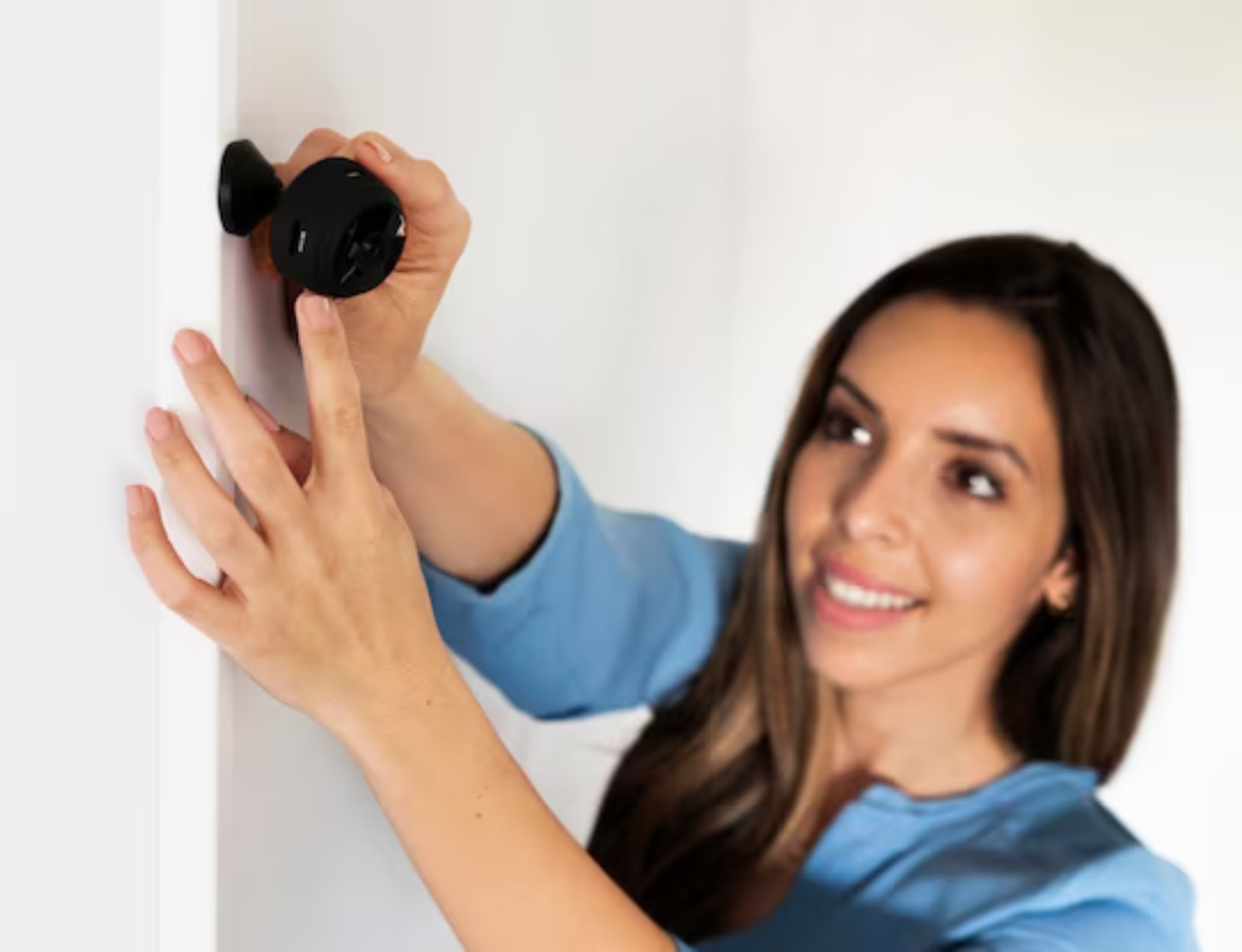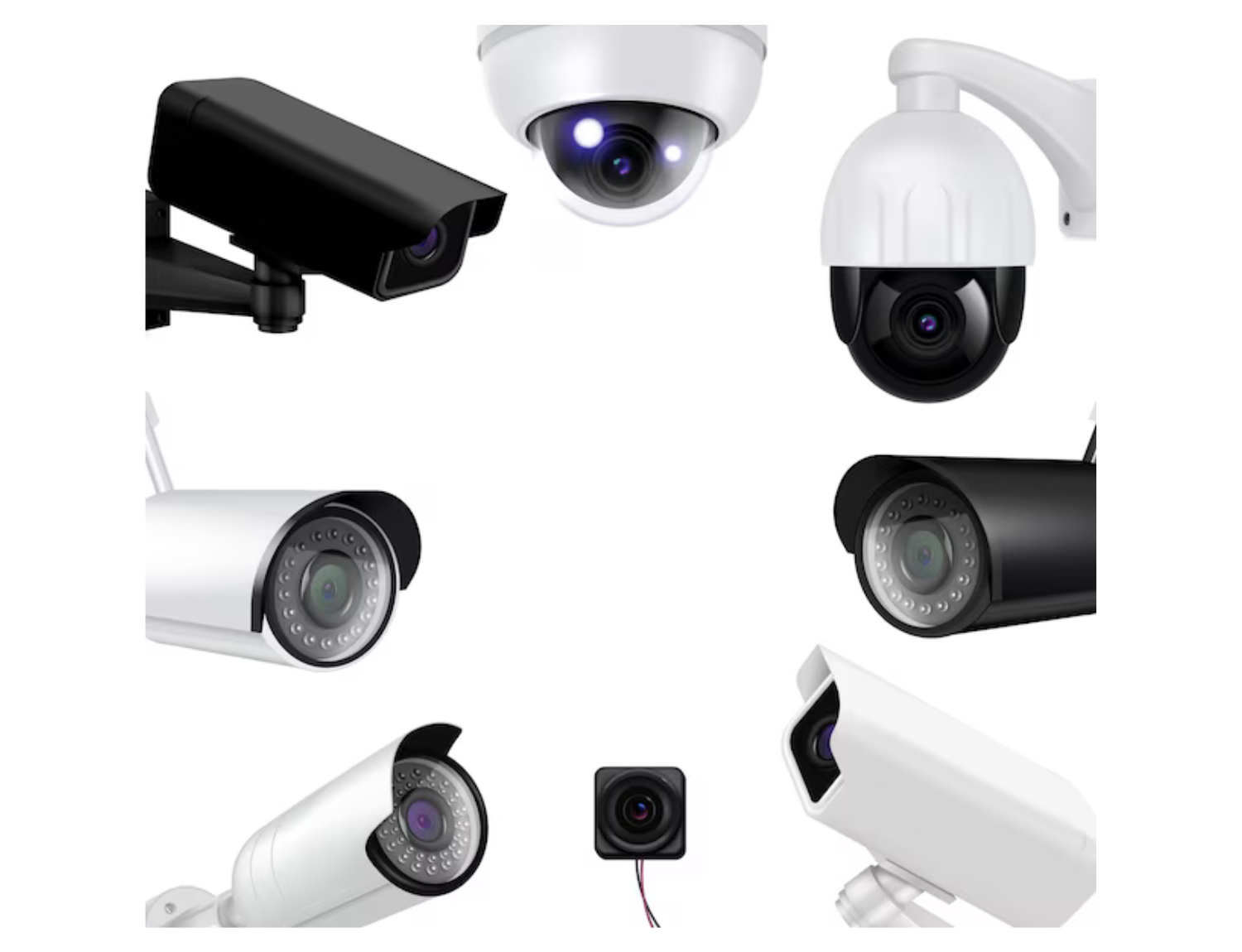People around the world have realized the importance of home CCTV surveillance. To keep security concerns at bay and keep the house or office safe from intruders, a CCTV camera proves to be extremely useful. Read more to find out the Cost to Install CCTV at home!

One of the most commonly used home security and surveillance systems, a closed-circuit television (CCTV) is a great way to keep an eye on your home and its surroundings. Service providers can easily install cameras in different parts of the house. The strategic placement of home CCTV cameras allows round the clock property monitoring and surveillance. It is a reliable and efficient means to ensure privacy as well as security. And the best part is it is cost-effective.
The cost to install CCTV for home varies between ₹7500 to ₹25,000. The price depends on the kind of home security cameras you choose, its brand and the type of cameras installed at your premises.
Benefits of Installing Home Security Cameras
To beef up home security, nothing works better than CCTV surveillance. Still wondering about the benefits of home security? Here are some benefits that you must consider.
Ensures Security
Burglars or anybody intending to create a nuisance tries to stay away from premises that are monitored by a home CCTV system. Even if they enter your home, the footage can act as important evidence against the culprits. In today’s day and age, danger lurks around the corner. To keep your loved ones safe and secure, think about installing CCTV cameras around the house.
Constant Monitoring
The footage captured by the CCTV camera is transmitted to a monitor. Therefore, people can easily keep track of people coming to the home. It also helps you to decide whether to open the door for a stranger or not. Often these systems are accompanied by a security alarm. If you sense any danger or imminent threat to your life or property, it can act as the perfect tool to inform law enforcement agencies.
Enables Remote Surveillance
To check the live feed generated by your home security and surveillance system, you need not sit at home. It can be easily monitored from a laptop or smartphone. For instance, if you have a small child at home and you are apprehensive about leaving the little one alone, you can simply tap into the home surveillance system from your phone.
Peace of Mind
When you feel safe and secure, it automatically ensures peace of mind. With an effective home CCTV system, you can always be relaxed. Besides, it is an excellent tool for keeping records and can be used to find culprits after a burglary or an untoward incident in your vicinity. In fact, it acts as a great deterrent for most criminals and it is likely to keep the entire neighborhood safe from any external attack.
Going on a vacation? Here’re 10 things to do before you go on a vacation.
Types of Home CCTV Cameras
Different types of CCTV cameras are available in the market. Let’s take a look at some of the most common varieties used for homes as well as businesses.

Dome CCTV Cameras: It gets its name from the dome shaped casing that contains the camera. With a discreet appearance, it is a great choice for rooms, corridors and enclosed areas. It is ideal for indoor as well as outdoor use and its dome shape makes it difficult to guess where the camera is pointing. Therefore, criminals stay away from areas covered by these cameras.
Bullet CCTV Cameras: A classic CCTV camera, it ensures better monitoring over long distances. It is mostly used outside and is resistant to dirt, water and dust. The outer casing is also very strong and protects the camera against rain and sunlight.
C-Mount CCTV Cameras: This model is quite bulky and is visible to visitors. Special lenses can be fitted to these cameras to extend the range beyond 40 feet. The outer case is made with weatherproof material and is ideal for outdoor usage.
Day/ Night CCTV Cameras: These are specially designed to capture clear images at night and during the day. The extra sensitive imaging chips used in these cameras help to record clear images, irrespective of outdoor lighting conditions. It is therefore, the best device for capturing sharp images even in dimly lit areas.
Pan Tilt and Zoom Cameras: The security team can flexibly tilt and pan the lens left or right, depending on their requirement. It provides a 360 degree field vision and helps to closely focus on desired subjects. Its image resolution is also commendable and often helps to accurately decipher facial features.
Infrared/ Night Vision CCTV Cameras: The night vision cameras use infrared technology to capture images even in pitch dark conditions. It can even provide images amidst heavy fog, smoke or dust.
Network/ IP CCTV Cameras: A preferred choice for home security and surveillance, these can be connected to the internet for obtaining live footage. Not only does it allow the flexibility of viewing images from anywhere around the world, it also makes archived footage easily accessible. It also has a low maintenance cost.
Wireless CCTV cameras: It is easy to install and looks neat and tidy without any external wires. The images can be easily transmitted over the internet and have facilities for archiving the footage.
High Definition CCTV cameras: To obtain sharp, clear and distinct images, these are a perfect choice. Its crystal clear image makes it extremely easy to detect criminals. It is therefore installed in areas where the risk of crime runs high.
Analog Vs Digital Security Systems
The primary difference between an Analog and Digital Security System lies in the method for recording and delivering the video. In the case of Analog cameras, the signal is transmitted to the home CCTV DVR. The signals are then processed and converted by the DVR into digital signals which can be stored on a hard drive. If you want to broadcast it over an internal network, the DVR must be connected to monitors or a router and modem.
Digital Security Systems, on the other hand, record digital images. These signals can be directly transmitted through the internet without a DVR. The image quality of digital systems is much better in comparison to the Analog cameras. However, the initial set up cost can be slightly expensive.
Taking into consideration the continuous evolution of technology, it is better to keep up with the latest trends. Therefore, choosing a digital CCTV system can be a wiser choice with multiple benefits in the long run. Not only does it provide sharp images, but its surveillance capacity is far better than its analog counterpart. One digital camera can easily monitor an area that would require three or four analog cameras.
Besides, it can be installed with fewer cables and it can be easily adapted to a wireless network. Moreover, data encryption allows complete safety and security of the footage captured through digital systems.
What Determines the Cost of CCTV Installation for Home?
A number of factors play a crucial role in determining the cost of CCTV for home. The first and foremost factor is the choice of camera. Depending upon its features, cameras are available in varied price ranges. Dome cameras, for example, are priced lower than Bullet cameras. Similarly, Analog cameras are cheaper than IP cameras.
The installation price is also determined by the brand you choose. The final price depends on the installation process as well. The charges for wired and wireless connections are different. If you are looking for advanced features like remote access, on-site DVR storage, motion detectors, high resolution or night-vision cameras, the cost can rise sharply.
However, if you consider the advantages of installing an advanced CCTV system in your premise, the initial set up charge can be considered a fruitful investment. Eventually, your choice of product and preferences for advanced features will determine the final price of the system.
Things to Consider Before Selecting a CCTV System
Before selecting a CCTV system, you need to determine whether you require a discreet or a bigger box camera. While cameras that are easily visible keep criminals away, a compact camera can be used to monitor the premises around the house. It can also follow movement with relative ease. Check out some latest models of CCTV for Home
Think about the placement of cameras. Do you need to install it indoors or in outdoor areas? If you want a camera for outdoor usage, it must be weatherproof. Similarly, if it is to be installed around kitchens or rooms, make sure to check whether it is steam, grease or dust proof.
Image clarity is an important consideration. Therefore, choose cameras that provide sharp images. It may not be a bad idea to even choose cameras that provide great footage even in low light conditions. Connectivity issues are also an important consideration. Whether you need to connect it to a wired or wireless network can determine its usability. Security systems with in-built alarms can also be an excellent choice.
Remember, depending on the kind of features and upgrades you opt for, the price of installation is likely to increase. So, before making a decision, check the pros and cons to get a fair idea about its usefulness.